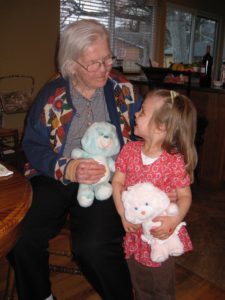Do we care? Really? Has our overinflated sense of personal freedom condemned us to fail as a society that cares for each other?

Last year, I wrote about my first experience wearing a mask in public. I realized in the moment of walking into the post office that I was donning the mask out of concern for others. Before Christmas, the same office displayed large black ribbons in honor of a postal clerk who had died of COVID. Did we, the patrons, give him the disease?
During this pandemic, we have all been called upon to make some sacrifices for the common good. Many have made great sacrifices — retail workers, first responders, and healthcare providers, to name a few. The call was much more modest for most of us — wash our hands, wear a mask, don’t gather in large crowds, and get vaccinated.
The call to sacrifice
Contributing opinion writer, Margaret Renkl, reflected on this call to sacrifice in her piece, “We Were Called to Sacrifice as a Nation. We Didn’t Answer.” The article was published in The New York Times this past Memorial Day, a day we remember those who sacrificed all for the common good.
She likened the novel coronavirus to a deadly enemy — not unlike the fascists we confronted and defeated in World War II. My father and millions of men and women in his generation answered the call to join that fight. There was no question that he would go. It’s what that generation did. Our nation depended on those who were willing to sacrifice.
Renkl suggests this sense of national sacrifice was squandered in the Vietnam War. Not only were we misled by our government about the imagined progress of the war effort, but the sacrifice fell mainly on the poor and minorities who could not avoid the draft.
I was fortunate enough to attend college at that time and so was deferred from the draft. But I kept a constant eye on my draft status, wanting to avoid the fate of the others who died in our losing effort.
The false idol of personal freedom
Many feel the call to wear a mask or get a vaccine violates their personal freedom. Rep. Jim Jordan of Ohio put it this way in a congressional hearing in April, “‘Dr. Fauci, when is the time?’ Jordan kept asking. He wanted to know when it was ‘time to pull back on masking’ and ‘physical distancing.’ ‘When do Americans get their freedoms back?’” The Washington Post
Excuse me? We had (and still HAVE) the opportunity to save the lives of tens of thousands of our fellow citizens by wearing masks and getting vaccinated. Why wouldn’t we?
Many choose not to because of “freedom.” What is missed by so many who refuse these simple measures for the sake of freedom is that we do them mainly to protect others, not ourselves. To get to herd immunity, we must have enough of the herd answering the call to “sacrifice” by getting a shot or two.
Renkl’s article also touches on another huge issue of our time: climate change. The loss of a sense of the common good here has an even greater impact on our world. In this case, instead of the elderly and medically at-risk, the others we are protecting by addressing global warming are our grandchildren and great-grandchildren. Are our “personal freedoms” more important than they are?


